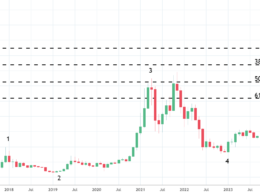The Internal Revenue Service (IRS) has announced that it will be waiving penalty fees for taxpayers who owe less than $100,000 in back taxes for the years 2020 and 2021. This relief measure will be available to nearly 5 million individuals, businesses, and tax-exempt organizations, with most earning under $400,000 annually. The total amount of relief granted is expected to reach $1 billion.
During the pandemic, the IRS temporarily suspended the automated reminders that were typically sent to remind taxpayers of their overdue tax bills. As a result, the agency has decided to forgive failure-to-pay penalties, citing the interruption caused by the pandemic as the reason behind this decision.
According to the IRS, these reminder notices would have been issued as a follow-up after the initial notice, but due to the unprecedented effects of COVID-19, they were temporarily suspended. However, it’s important to note that the failure-to-pay penalty will continue to accrue for taxpayers who did not fully pay their bills in response to the initial balance-due notice.
While the IRS plans to resume sending out normal collection notices, this announcement serves as a one-time relief measure specifically intended to address the unique circumstances brought about by the pandemic. IRS officials emphasize that this change will be automatic for many taxpayers and will not require any additional action from them.
To be eligible for automatic relief, taxpayers must have filed a Form 1040, 1041, 1120 series, or Form 990-T tax return for either 2020 or 2021. Additionally, they must owe less than $100,000 per year in back taxes and have received an initial balance-due notice between February 5, 2022, and December 7, 2023.
In cases where taxpayers have already paid the failure-to-pay penalty, they will receive a refund, as confirmed by IRS Commissioner Daniel Werfel. Werfel also reassures the public, stating, “People need to know the IRS is on their side.”
This waiver of penalty fees for small back taxes reflects the IRS’s recognition of the financial difficulties faced by many during these challenging times. By granting this one-time relief, the agency aims to provide support and alleviate the burdens brought about by the pandemic.





